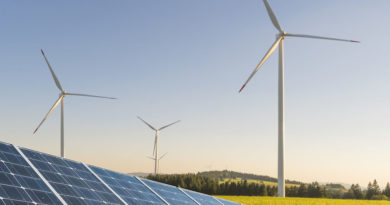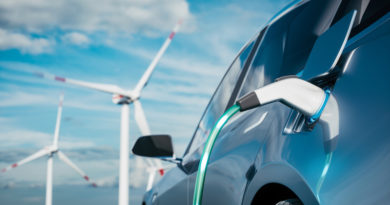
Three lessons to build European energy security for the 21 st century
“A certain centre of gravity develops, the hub of all power and movement, on which everything depends. That is the point against which all our energies should be directed”. Clausewitz, On War.
On February 24th 2022 Europe entered a new era. Ukraine started its fight for its very survival, and to ensure that peace and security can be once again on Europe’s horizon. Since then, the EU and its Member States have given around 100 Bn€ to Ukraine. It also spent more than 210 Bn€ to Russia to buy its oil and gas. This is a paradox. While the EU clearly is on Ukraine’s side, it continues to nurture Vladimir Putin’s centre of gravity: oil and gas. How did Europe become so reliant on two energy sources that sustain its enemies? Because of a series of historical choices. Many, such as the Royal Navy’s choice to switch from coal to oil, were taken in the age of empire. In the last two centuries, Empires that had their metropolis in Europe could access vast oil resources.
The companies we now know as Total, BP, and Shell were created back then to exploit oil in, respectively, Iraq, Iran and Indonesia. As European empires lost their colonial wars, their dependence on imported oil became their Achilles heel.
In 1973, oil-producing states chose to strike, creating the first oil shock. To address this massive energy security challenge, 1970s decision makers made three choices we can learn from:
– Energy sufficiency and energy efficiency. From information campaigns in France to investments in biking infrastructure in the Netherlands and new buildings energy performance standards in West Germany. Those measures helped reduce oil consumption for the first time in peacetime history. EU oil consumption peaked in 1973, and soon declined by 5 to 10% in Italy, France, Belgium or the Netherlands. Meanwhile, the Soviet Union prevented the European nations it oppressed to adopt energy efficiency measures, leading to an oil consumption increased by a quarter in Czechoslovakia, a third in Bulgaria or almost by half in Poland in the same period.
– Domestic energy production. The UK and the Netherlands led investment in North Sea oil and gas production. France, Belgium, Germany all launched nuclear power plant construction programmes. Denmark invested in wind power. The exploitation of Europe’s meagre oil and gas resources proved useful in the short term, but delayed more structural policies that became inevitable as Dutch gas production peaked as early as 1976, and British oil production peaked in 1999. Meanwhile, the growth of nuclear power encountered political limits. France curtailed its original ambition as its elite acted to protect fossil gas demand. German and Italian democratic choices banned the construction of new nuclear power plants. Danish investment in wind power proved in the end to be globally transformative as it built the basis for the wind power technology we know today.
– Importing oil and gas from other countries. In a grand game of “robbing Peter to pay Paul”, Western European governments chose to reduce their reliance on Middle Eastern oil and gas by buying Russian oil and gas. In Austria, Germany and France, this choice for Russian fossil fuels created a small economic elite with political clout that have been consistently lobbying by further energy ties with Russian fossil oligarchs. They consistently pushed for more megaprojects like Nord Stream or Yamal LNG, worsening European dependence on Russian energy.
Today, the EU is not facing a shortage of oil. We live the aftermath of the first gas shock in our history: a massive increase in gas prices created by Vladimir Putin’s decision to drastically reduce Russian gas exports to the EU.
It started in the summer of 2021 – possibly to create inflation to weaken European resolve ahead of Putin’s full-scale invasion of Ukraine. It worsened in the spring of 2022, when Putin retreated his defeated forces from central-Ukraine to lead the attritional war he is still waging in Donbass. Yet, which lessons can we draw from the 1970s reaction? First: energy efficiency works. European gas consumption peaked in 2010 at 423bcm. It structurally decreased over time as energy efficiency investments in buildings and industry rose. One of the unsung victories of the EU energy efficiency policy is that it probably saved the European industry from a total collapse provoked by a complete shortage of gas in the winter of 2022.
Now more than ever, we need to double-down on energy efficiency regulatory implementation and investments. However politically unpopular those measures might be for a fraction of European landlords, they are vital for the very survival of our industry, to ensure the fossil gas we will still need in the two decades to come can come to Europe at an affordable price. Second: homegrown energy works. The exploitation of oil and gas in the North Sea was a key component of Western-European energy security for a while. But those resources are gone. Today, Europe imports 97% of its oil, 90% of its gas. While nuclear energy benefits from a surge in popularity, its contribution to energy security remains limited. Nuclear giant EDF hopes that the EU nuclear fleet can grow from 100GW today to 120GW by 2050. But as electricity consumption is expected to increase, the very same EDF study expects the share of nuclear in the power mix to decrease from 25% today to 16% in 2050. With fossil fuels no longer being a viable option, and nuclear’s impact being limited (regardless of the democratic choices that still need to be made on this controversial energy source), what can we do? The solution is obvious: renewable energy. The more we deploy wind and solar, the more energy secure we are. Bullies like Putin and Trump can cut off gas supply to Europe, but they cannot stop the wind from blowing in Gdansk or the sun from shining in Madrid. Any serious European energy security strategy needs to put renewable energy at its core. Wind and solar electricity generation but also all other renewable energy sources, from mature solutions like solar heating systems and heat pumps, to more innovative ones like deep geothermal, osmotic and tidal energy. Third: international cooperation.
We need to reduce Vladimir Putin’s capacity to turn its oil and gas into missiles and mercenaries he throws at Ukraine now – and possibly directly at us in the future. Kaja Kallas should therefore engage with Russian fossil fuel importers, especially India, to provide them with better options.
Our Europe would be more secure, both from a climate and a geopolitical perspective, if Indians were using Danish and Spanish wind turbines, rather than Russian fossil fuels. Weakening Putin also means that Europe should immediately stop funding his war machine. In the very short term, let’s stop importing all Russian gas, including LNG. For the coming two decades, Europe will still need to import some oil and gas. The lower the better. The EU currently has only one significant reliable supplier of gas: Norway. All others (Russia, Algeria, Azerbaïjan, USA, Qatar, Libya) are subject to severe potential geopolitical disruptions. Theoretically, the EU could import LNG from Australia, but geographical distance equals higher economic costs, making Australian LNG imports to Europe outrageously costly. The situation is somewhat similar for oil. With renewables, the energy source is secure and homegrown. With demand- side flexibility, battery and heat storage, as well as less well known renewable energy sources (concentrated solar power, tidal, osmotic), energy security will be almost guaranteed in peacetime. The challenge comes in ensuring some degree of European access to the stock of raw materials and cleantech equipment to build and maintain the system.
Conclusion:
In fossil fuel geopolitics, one problem somewhere leads to oil and gas prices going through the rough in Europe in the coming days, and possible shortage in the coming year. Just like in 1973. In our clean energy future, only extreme scenarios would seriously threaten European energy security. And even then, pain is delayed, impacts are limited. For instance, if Europe were unable to source any new solar panels and batteries from China, this would have near zero impact on the electricity price for several years, as it does not affect the solar panels that are already in Europe. In that scenario, Europe will start suffering after around 5-10
years, and only if it were to fail to revive its domestic solar PV industry or source solar panels from other places. As fossil fuel geopolitics are being phased-out and clean energy geopolitics phased-in, Europe should strengthen its geopolitical game. 80% of global lithium reserves lie in democracies, especially Australia and Chile, which also happen to have massive solar and wind potential. Both countries have a vested interest in cooperating more with the EU, to avoid becoming the collateral damage of US renewed imperialism clashing with Chinese expansionism. Strengthening European cooperation with them is vital to ensure Europeans can access critical materials through win-win partnerships. As for access to critical equipment: Europe has the potential to be self-sufficient in battery manufacturing while becoming a global exporter of wind power systems, electrolysers, electricity cables, solar heating systems and heat pumps. The only clear weakness is solar PV, an industry that was destroyed by the Council of the EU in the early 2010s when it chose the maximisation of quarterly profits of European diesel car exporters, over the survival of the nascent European solar PV industry. But it would only take investments of less than 0,1% of the EU GDP for the European solar industry to reviveto be born again. Let us be clear: the dusk of fossil fuels is probably the best piece of news for European security since the fall of the Soviet Union. The fact that the political forces fighting against clean energy are also allied to Vladimir Putin is not a coincidence. Fossil fuels and Putin’s strengths are two sides of the same coin: it is our dependence on fossil fuels that give power to Putin. In my view as a former French soldier, any true patriot, regardless of his political beliefs, should support energy efficiency and renewable energy as the two main priorities for true patriotic energy policymaking. The choice for fossil fuels is the choice for geopolitical weakness and planetary collapse. The Green Deal is Putin’s kryptonite. Thanks to the good choices made by our forefathers in the 1970s, we now have all the technologies we need to make Europe energy secure again!




